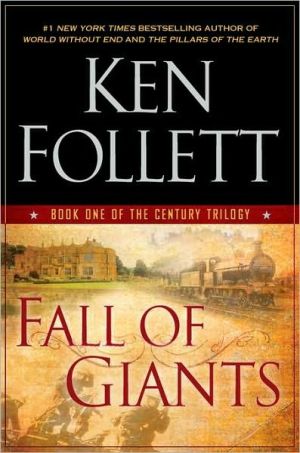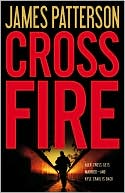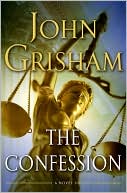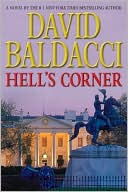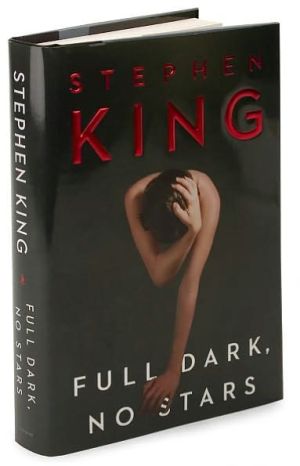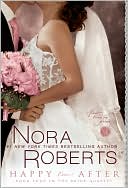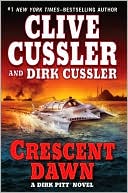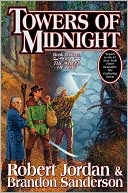Fall of Giants
View our Ken Follett feature page.\ Ken Follett's World Without End was a global phenomenon, a work of grand historical sweep, beloved by millions of readers and acclaimed by critics. Fall of Giants is his magnificent new historical epic. The first novel in The Century Trilogy, it follows the fates of five interrelated families—American, German, Russian, English, and Welsh—as they move through the world-shaking dramas of the First World War, the Russian Revolution, and the struggle for...
Search in google:
Ken Follett's World Without End was a global phenomenon, a work of grand historical sweep, beloved by millions of readers and acclaimed by critics. Fall of Giants is his magnificent new historical epic. The first novel in The Century Trilogy, it follows the fates of five interrelated families-American, German, Russian, English, and Welsh-as they move through the world-shaking dramas of the First World War, the Russian Revolution, and the struggle for women's suffrage. Thirteen-year-old Billy Williams enters a man's world in the Welsh mining pits...Gus Dewar, an American law student rejected in love, finds a surprising new career in Woodrow Wilson's White House...two orphaned Russian brothers, Grigori and Lev Peshkov, embark on radically different paths half a world apart when their plan to emigrate to America falls afoul of war, conscription, and revolution...Billy's sister, Ethel, a housekeeper for the aristocratic Fitzherberts, takes a fateful step above her station, while Lady Maud Fitzherbert herself crosses deep into forbidden territory when she falls in love with Walter von Ulrich, a spy at the German embassy in London... These characters and many others find their lives inextricably entangled as, in a saga of unfolding drama and intriguing complexity, Fall of Giants moves seamlessly from Washington to St. Petersburg, from the dirt and danger of a coal mine to the glittering chandeliers of a palace, from the corridors of power to the bedrooms of the mighty. As always with Ken Follett, the historical background is brilliantly researched and rendered, the action fast-moving, the characters rich in nuance and emotion. It is destined to be a new classic. In future volumes of The Century Trilogy, subsequent generations of the same families will travel through the great events of the rest of the twentieth century, changing themselves-and the century itself. With passion and the hand of a master, Follett brings us into a world we thought we knew, but now will never seem the same again.The Washington Post - William Sheehan…in every way, a Big Book…Just as Herman Wouk did in The Winds of War and War and Remembrance, Follett creates a large cast of fictional characters and deploys them across the globe, using their private experiences to illuminate the catastrophic events that marked the early years of the century…[Follett] knows how to tell a compelling, well-constructed story. Once its basic elements are in place, the narrative acquires a cumulative, deceptively effortless momentum…Perhaps the major reasons for the novel's ultimate success are Follett's comprehensive grasp of the historical record and his ability to integrate research into a colorful, engaging narrative.
\ From Barnes & NobleWith novels like Pillars of the Earth, The Key to Rebecca and World Without End to his credit, Ken Follett could continue to please fans with standalone fiction. Instead, this respected, popular (100+ million copies sold) author has just embarked on an ambitious time-spanning, globe-spanning epic. Each book will focus on a new generation of five inter-related families of five distinct nationalities: American, German, Russian, English, and Welsh. This thousand-page fiction takes its main characters into some of the main theaters of the First World War, the Russian Revolution, and the struggle for women's suffrage. Fiction on a grand scale.\ \ \ \ \ \ Publishers WeeklyUsing characters from different countries—Russia, Wales, England, the U.S., and Germany—and from different classes, Follett's first book in the Century trilogy provides a compelling mesh of interactions that push the story forward and allow a panoramic view of WWI's burden on five families. With over 30 hours, this audiobook would be a challenge for any narrator, but John Lee proves a solid and engaging choice. His deep voice moves through the prose smoothly and forcefully; he manipulates his tone, emphasis, and accent to develop vocal personas for the extensive cast of characters, and keeps a solid pace through the dialogue. It's a marathon performance of a mammoth book that will leave listeners eagerly anticipating the next installment. A Dutton hardcover. (Sept.)\ \ \ Publishers WeeklyThis first in a century-spanning trilogy from bestseller Follett (Eye of the Needle) makes effective and economical use of its lead characters, despite its scope and bulk. From a huge cast, eight figures emerge to play multiple roles that illustrate and often illuminate the major events, trends, and issues of the years leading up to and immediately beyond WWI: American diplomat Gus Dewar; Earl Fitzherbert, a wealthy Englishman; Fitz's sister, Lady Maud; German military attaché Walter von Ulrich; Russian brothers Grigori and Lev Peshkov; Welsh collier Billy Williams and his sister, Ethel, whom Fitz hires as a housemaid. Ingenious plotting allows Follett to explore such salient developments of the era as coal mine safety in Wales, women's suffrage, the diplomatic blundering that led to war, the horrors of trench warfare, and the triumph of the Bolsheviks. While this tome doesn't achieve the emotional depth of the best historicals, it is a remarkable and wonderfully readable synthesis of fact and fiction. 1,000,000 first printing; author tour. (Sept.)\ \ \ \ \ Library JournalQuality fiction is important. You don't want a story insulting your intelligence or wasting your time, though Paul Carson managed both with Ambush (St. Martin's, 2008). Be it his medieval saga The Pillars of the Earth (41 freaking hours on audio!) or taut thrillers like Code to Zero, my pick of the day for top-shelf stuff is fat Welshman Follett. The new thing he's doing is a 20th-century historical novel. But, wait, before he goes all Leon Uris on your ass (get it? Uris? Your Ass? Plus the whole historical novel thing? HA!), know that Follett keeps things peppy through what could be a torture-chamber-length book. Covering 1911 to the early 1920s, the story ranges all over Europe, Asia, and America following five families before during and after the Great War and the Russian Revolution. Central characters come to typify the societal upheaval du jour, such as Ethel, sister of a Welsh coal miner, who becomes a suffragette after squeezin' out a bastard. Follett is painting on a big canvas, so like George Lucas's Star Wars crap, some situations feel forced, and some characters feel like toy soldiers. Readers might have the sense they are reading the same text over again. But you're not reading an assburner like this for fine character detail, are you? It's entertaining, high-quality stuff on the whole. Keep in mind another not-crap writer who occasionally has stuff explode: James Lee Burke. And a woman who frequently has the crap explode right out of her: Delta Burke (no relation). — Douglas Lord, "Books for Dudes," Booksmack! 1/6/11\ \ \ \ \ Kirkus ReviewsA massive, cat-squashing, multigenerational and multifamilial saga, the first volume of what Follett (World Without End, 2007, etc.) promises as a trilogy devoted to the awful 20th century.\ The giants in question, metaphorically, are the great and noble families of old Europe, a generally useless lot with a few notable exceptions. One such worthy, Lord Fitzherbert (try not to think of Bridget Jones here), is a sun around which lesser planets circle, a decent fellow who had been an admiral, British ambassador to the tsar's court at St. Petersburg, and a government minister. His son, Earl Fitzherbert, is less notable, if fabulously wealthy: He "had done nothing to earn his huge income,"and the presence of the awful Liberals in Parliament, Winston Churchill among them, keeps him from coming into his own as the great foreign secretary he wishes he could be. Into the Fitzherbertian orbit fall the Williamses, Welsh colliers of sweet voice and radical disposition; if Follett's sprawling story has a center, it is in Billy, who is but 13 as the saga opens and has a great deal of growing up to do. In the outlying reaches of the galaxy is Grigori Peshkov, plotter of the Bolshevik victory and slayer of tsarist officers in a scene straight out of Doctor Zhivago, a confidant of Trotsky's, who figures in the later pages ("Trotsky took the bad news calmly. Lenin would have thrown a fit"). He's just one of history's greats to bow into Follett's pages: Churchill figures into the story, as does Woodrow Wilson. But so, too, does a full six-page dramatis personae, so that there's never a dull or unpeopled moment. Throughout it all, Follett keeps a dependable narrative chugging along; if the writing is never exalted, it is never less than workmanlike, though one wonders about anachronisms here and there. (Did Woodrow Wilson, college president and master diplomat, really say "Heck"?)\ With an announced million-copy initial printing and a national author tour, this is sure to be one of the season's inevitable and unavoidable blockbusters—and not undeservedly.\ \ \ \ \ \ William Sheehan…in every way, a Big Book…Just as Herman Wouk did in The Winds of War and War and Remembrance, Follett creates a large cast of fictional characters and deploys them across the globe, using their private experiences to illuminate the catastrophic events that marked the early years of the century…[Follett] knows how to tell a compelling, well-constructed story. Once its basic elements are in place, the narrative acquires a cumulative, deceptively effortless momentum…Perhaps the major reasons for the novel's ultimate success are Follett's comprehensive grasp of the historical record and his ability to integrate research into a colorful, engaging narrative.\ —The Washington Post\ \ \ \ \ Roger Boylan…Follett is masterly in conveying so much drama and historical information so vividly. He puts to good use the professional skills he has honed over the years—giving his characters a conversational style neither pseudo-quaint nor jarringly contemporary. That works well. And for all his belief in the redemptive quality of liberal humanism, he makes sure not to endow his characters with excessively modern sensibilities. As for the occasional cliché—well, unless you're Tolstoy, you're not going to have the time or the ability to be original throughout your 1,000-page blockbuster. Ken Follett is no Tolstoy, but he is a tireless storyteller, and although his tale has flaws, it's grippingly told, and readable to the end.\ —The New York Times\ \
